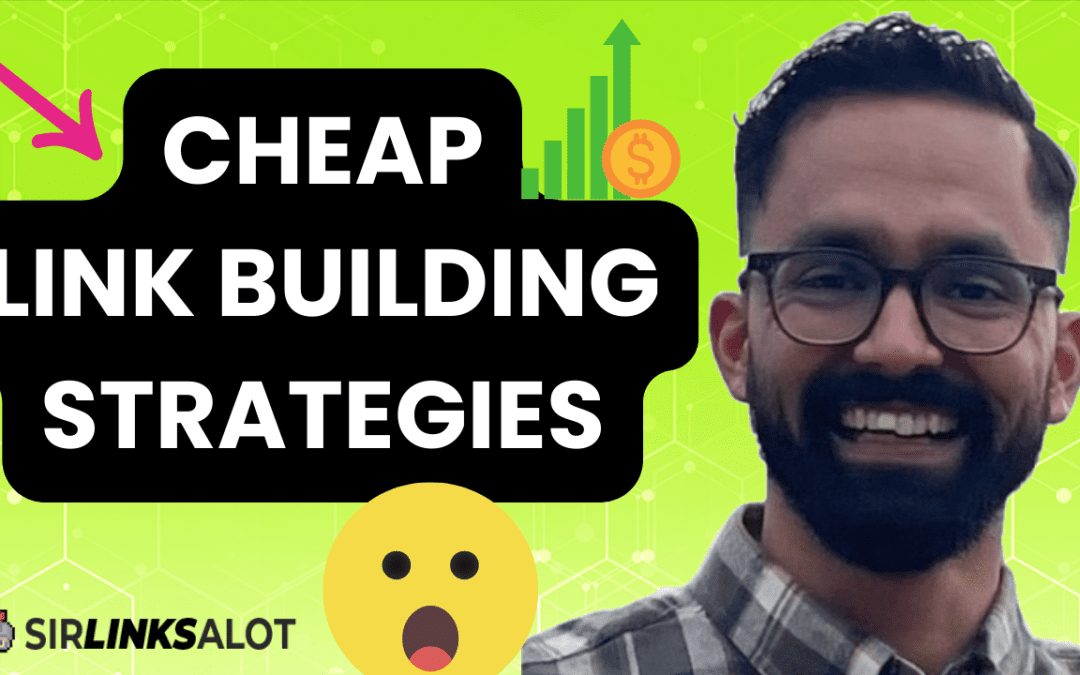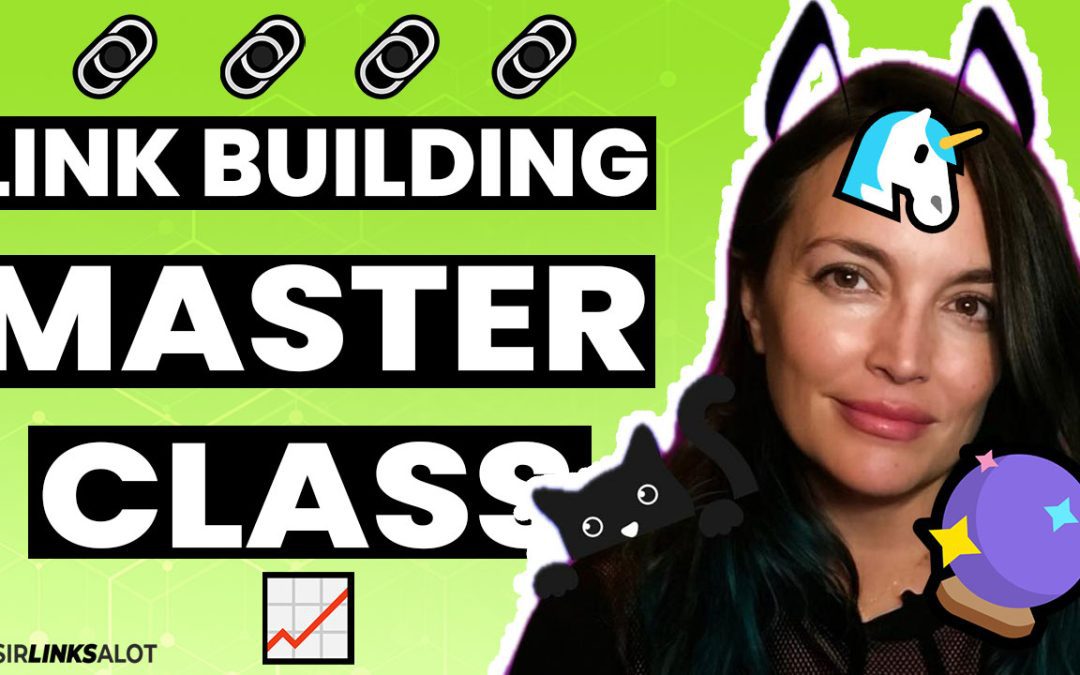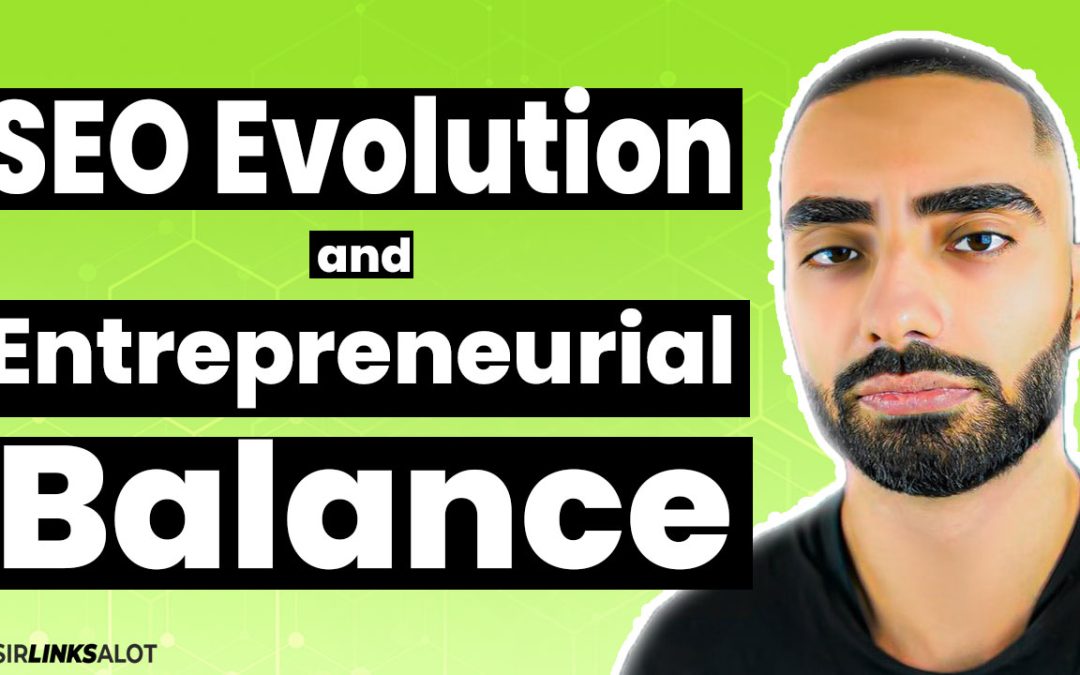Gregory Elfrink is the director of marketing at Empire Flippers, a leading marketplace for buying and selling online businesses.
He’s also a pretty cool dude (a nerd’s nerd) that we had the chance to meet a few months ago in Vietnam!
In today’s podcast episode, we talk to Gregory about the state of the website market now that AI content is here. What you should do, what you shouldn’t do, and how to get the most money when exiting.
Think you’d be a great addition to our podcast, or have a request for someone to be featured? Head over to our podcast discovery page.
Watch the Podcast:
Podcast Summary:
[08:58] What does your day-to-day look like with Empire Flippers?
We have a content management team and a content marketing team. We recently launched our referral program. I would consider myself a content marketer with a major focus on SEO. Most SEOs leave so much money on the table because they fail to do much actual marketing outside of just ranking. Most of my job at Empire Flippers is making sure people can do their job and that what they do grows the company. We do content marketing, events, networking, referral programs, and tons of content collaborations. Basically, take all of those different segments of marketing and put them together to work as one machine. That often involves interviewing a lot of customers to get data on what they want. We want to solve any problem an entrepreneur has, from the aspiring stage to the exit stage to the acquisitions stage. We want to cover the entire timeline of the internet entrepreneur.
[13:26] What does your management structure at Empire Flipper look like now that you have 80 people on your team?
Our team has shrunk with the recession. But at the height of the 2020-2021 asset bubble, I had a content manager and a marketing ops supervisor underneath me. Today, I also have a referral manager underneath me. I believe in keeping my marketing team small because marketers have so much leverage that you really don’t need a huge team as you do with sales.
[15:12] Tell us about Empire Managers’ unique insights into buying and selling websites amid the AI gold rush.
I have helped create 76 millionaires at the moment of exit. I’ve seen sellers become buyers and vice versa. I think buying digital assets, in general, is the only legitimate “get-rich-quick scheme” that works. I’ve seen all the different business models and how you can combine them all. I look at deal flow in terms of volume rather than quantity because the size of businesses has changed so much in the past few years.
[18:35] Why have things slowed down due to the recession? Does it have to do with fear of AI?
On the content side of marketing, it’s 100% driven by fear of AI. But I truly believe that the fear is overhyped. We, as SEOs, tend to get overly emotional about changes in the market, from Google’s announcements to ChatGPT. I look at it as a massive opportunity. But the M&A industry as a whole is getting brutally punched in the stomach right now. Private capital has just dried up. There’s still dry powder, but people don’t want to put it into volatile assets such as digital assets when there are other assets that are more certain that they can invest in. We’re in this protracted stagnation with an uncertain asset. There were also supply chain issues which are largely solved nowadays. But with those capital restrictions, there are far fewer buyers. Those who are left are the bootstrap entrepreneurs. They’re good buyers, though obviously not as good as cash-upfront buyers like those in private equity. That means sellers have had to adjust their expectations. If you didn’t sell in 2020 to early 2022, you missed the boat on the season of the seller. The good news is the multiples are still dramatically higher today, and businesses are still getting sold today at those multiples that they were being sold in 2019. As a new buyer, all of this is great because your competition is decimating. It’s all about adjusting expectations.
[24:33] How have multiples changed in the past five years?
Online business valuations back in 2016 were worth very little. We were selling things at 20x monthly multiples so many times that people thought that was the only multiple we gave. Over the years, online businesses as assets have started to get parity with offline, local businesses. But an online business is way more liquid than, say, an HVAC company because you can literally sell from an e-commerce store or an affiliate site from anywhere in the world. An investor in India can buy your Canadian Shopify store. The liquidity of these assets also led to higher competition in terms of buyers who are hungry for this stuff, and that led to increased multiples. So, in 2019, we were pretty much on par with local business multiples—maybe slightly ahead. And then came that asset boom with aggregators raising literally billions of dollars to buy assets, which sped up a five-year trend down to a one-year trend. Now that the pandemic is over and the dust has settled, I think everyone’s a bit hungover from being so drunk on capital. But while the multiples are dropping now, they are still significantly higher than they were in 2019. We saw something like 27-28x monthly EBITDA in 2019. Nowadays, we’re seeing 34-37x, and at the height of it, we sometimes sold up to 50x. In fact, we even sold an FBA business for 70x, which should never happen, but the competition was just so fierce.
[28:33] Why should someone flip on Empire Flippers if they have a smaller business instead of Flippa?
As far as I remember, Flippa used to have the exact same commission as us, which is all you need to know. Flipps is a self-serve platform. We are an actual curated M&A firm, so the experience is very different. We reject around 95% of applications. Our minimums are a little higher than they used to be, but they’re still pretty low. As long as you’re making $2000 net profit per month, averaged over 12 months, you can sell your business with us. That would be between a $48,000 and $60,000 list price for the business.
[38:29] Do you only take on purely digital businesses, or do you also accept e-commerce stores attached to warehouse space with x amount of employees?
In the past, we wouldn’t have, but nowadays, we probably would because we have more experience with it. We have done splits where we separate the retail location from the actual brand. If the e-commerce owner actually owns the warehouse, I don’t see why we wouldn’t do it.
[39:46] Overall, from all-time highs, the multiples are down from everything, but have you seen a more pronounced drop in ad-based sites versus affiliate or e-commerce sites?
It’s actually been the opposite. The hunger for ad-monetized websites is higher than maybe they’re ever been. People really want them on the buy side. It makes sense because it’s a great business model since it’s hands-off once you create the content (aside from backlinks). You don’t need to manage hundreds of affiliate links. AI will only accelerate this reality. And it fits the bill for creating media companies for bigger businesses. Ad-driven websites tend to be built more like a media company than a pure affiliate site.
[45:42] For sites that are taking a holistic approach to monetization rather than going all-in on only affiliate or ads, have you seen any buyer fear that maintaining or scaling the site will take too much work or require a huge learning curve? Versus sites that are only monetized by ads and have a simple SOP?
That’s true on the low end (businesses valued below $200,000); but not true on the high end. New buyers are naturally scared of more complex stuff because they don’t have the experience. In fact, more experienced buyers will be concerned if a site only has one traffic channel. What happens if Google doesn’t update? You’re screwed. That said, the vast majority of businesses, both on the high-end and the low-end, are usually going to be dominated by one channel because a marketer can’t be good at everything. It’s almost impossible to be good at three channels. The solution is to hire a team. That’s the thing that holds most entrepreneurs back, not just in the affiliate space but in every business model I’ve ever encountered. Most entrepreneurs are control freaks when they really should have a goal to become the most useless person on their team. I say that tongue-in-cheek, but if you want the highest possible valuation where you could have a life-changing exit, you should become useless. Of the four horsemen of wealth, one (the weakest) is coding; another (the second-weakest) is sales; another (the second-strongest) is marketing; the last (most powerful) is delegation.
[50:05] Have you ever spoken with buyers about their fear of AI?
We’ll probably do a live stream if I can find some buyers who don’t have that fear. Right now, I’d say the majority of them have the fear. We’re trying to combat it, but if you have a belief that you hold on to very dearly, it doesn’t matter if you’re proven wrong. You’re probably still going to believe it. The funny thing is, AI is nowhere near as dangerous nor as helpful as people think it is. It’s in the middle.
[51:56] Besides AI, what are other things buyers hate to see?
One of the most common things is a seller building an email list and thinking that that will magically make the multiple better. I’ve been preaching email lists for years, but lists will only add value to your business if you’re actually using them to drive revenue. If you have a 10,000 subscriber list, but you’re not emailing them, that’s hurting your valuation. It’s often better if you just send them directly to the Buy Now button because you never did anything with them once they opted in. Another thing is to not have one page on your website make up over 50% of your traffic. That’s a big red flag because what happens if that one keyword goes away? Ideally, create diversification away from Amazon to avoid having 100% of your income come from Amazon. Bottom line, when you’re looking at selling a business, ask yourself what the critical points of failure are. The more you mitigate them, the more attractive your website will be to the buyer.
[56:42] What else should buyers look out for when considering a site?
When it comes to AI, it’s really tough to say. All the AI checkers are basically grifts, in my view. Google doesn’t really care about AI, but they do care about quality content? AI, in and of itself, is not a ranking penalty. But if you’re doing black hat stuff like Spin Rewriter back in the day, banging out a bunch of low-quality content, you might make a lot of money at first, but it’s a churn-and-burn game. It’s not unreasonable for a big site to publish 20 pieces of content in a day. The red flags we look for are traffic dips, crazy indexing, loss of all indexing, etc.
[59:20] Will AI kill SEO?
No.
[59:27] How can SEO stay ahead of the curve as things continue to evolve?
Embrace AI.
[59:37] Have you discovered any cool AI hacks or techniques, or services lately?
Too many for a short answer!
[1:00:22] Do you have any AI content writers that you prefer, or do you stick to raw content from ChatGPT?
ChatGPT can be great. I think ZimmWriter is best for SEOs.



